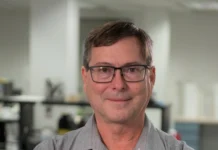RadTech International North America has added additional RadTech 2020 2.0 courses. The speakers will give these presentations live and online using the Zoom platform. Registration is free, but space is limited, so make sure to register as soon as possible.
Registration for is open now for all courses.
Upcoming courses include:
TAGA Tech Series
Speakers to include: Todd Fayne, PepsiCo; Juanita Parris, Sun Chemical Corporation; David Crawley, University of Houston; and Craig Reid, CTR Resources, LLC
April 27-30, 2020, from 2-3 p.m. EDT
Registration and details: https://www.taga.org/tech-series/
The TAGA Technology & Innovation Series features top industry thinkers giving you their insights about technology breakthroughs and impacts, new strategies for sustainable packaging and harnessing the power of innovation. This four-day virtual series will give you access to keynote speakers from the 2020 TAGA Annual Technical Conference, recently canceled due to the spread of the coronavirus. The Technical Association of the Graphics Arts (TAGA), part of Printing Industries of America, is a worldwide forum to disseminate information on technology research and innovation.
North American Market Overview
Eileen Weber, allnex and president, RadTech North America
Wednesday, April 29, 2020, at 11 a.m. EDT
Registration: https://zoom.us/webinar/register/WN_CCFC801ZSvKltL9GrFP5gg
This presentation will serve as an overview to the North American market for UV/EB curable materials, equipment and end uses.
Effects of Structure and Composition on Mechanical Properties of UV Systems
Dr. Paul Share, Advanced Materials Design
May 7, 2020, at 2 p.m. EDT
Registration: https://zoom.us/webinar/register/WN_-J0VCTnrSiiGuPnHUTIPTw
The formulation of UV-curable compositions for 3D printing requires the simultaneous optimization of opposing properties. Increases in cure speed, desirable for manufacturing throughput, can lead to brittleness, curling and storage instability. Increases in tensile strength and impact resistance, which are desirable for structural components, can lead to poor flexibility and low elongation. Increases in elongation, desirable for elastomers, can lead to surface tackiness and poor tear resistance. There is also a limited range of acceptable formulation viscosities unique to each 3D printing technology, which further confines the optimization space. In this presentation, a systematic synthesis and statistical mixture design study of the effects of oligomer structure and monomer formulation composition on the resulting mechanical properties of UV cured systems will be described.
High-Performance UV Curable Resin for Automotive Coatings
Marcus Hutchins, allnex
May 13, 2020, at 11 a.m. EDT
Registration: https://zoom.us/webinar/register/WN_PLjeFlWPQ9ihjcWFvGTtaw
Light weighting, reduced carbon footprint, throughput and sustainability are just some of the more common buzzards original equipment manufacturers (OEM) are using. They are looking for this advantage in not only the assembly process but also every part and coating aspect that goes into that assembly. Going hand in hand with the challenges to improve the assembly process is the need to meet more stringent performance requirements. This presentation will discuss a variety of UV-curable resins that can be used in a variety of automotive applications, such as film and sheets used in IMD/IML, metallization, conformal coatings, structural adhesives and automotive refinish applications.
For more information, visit radtech.org.







